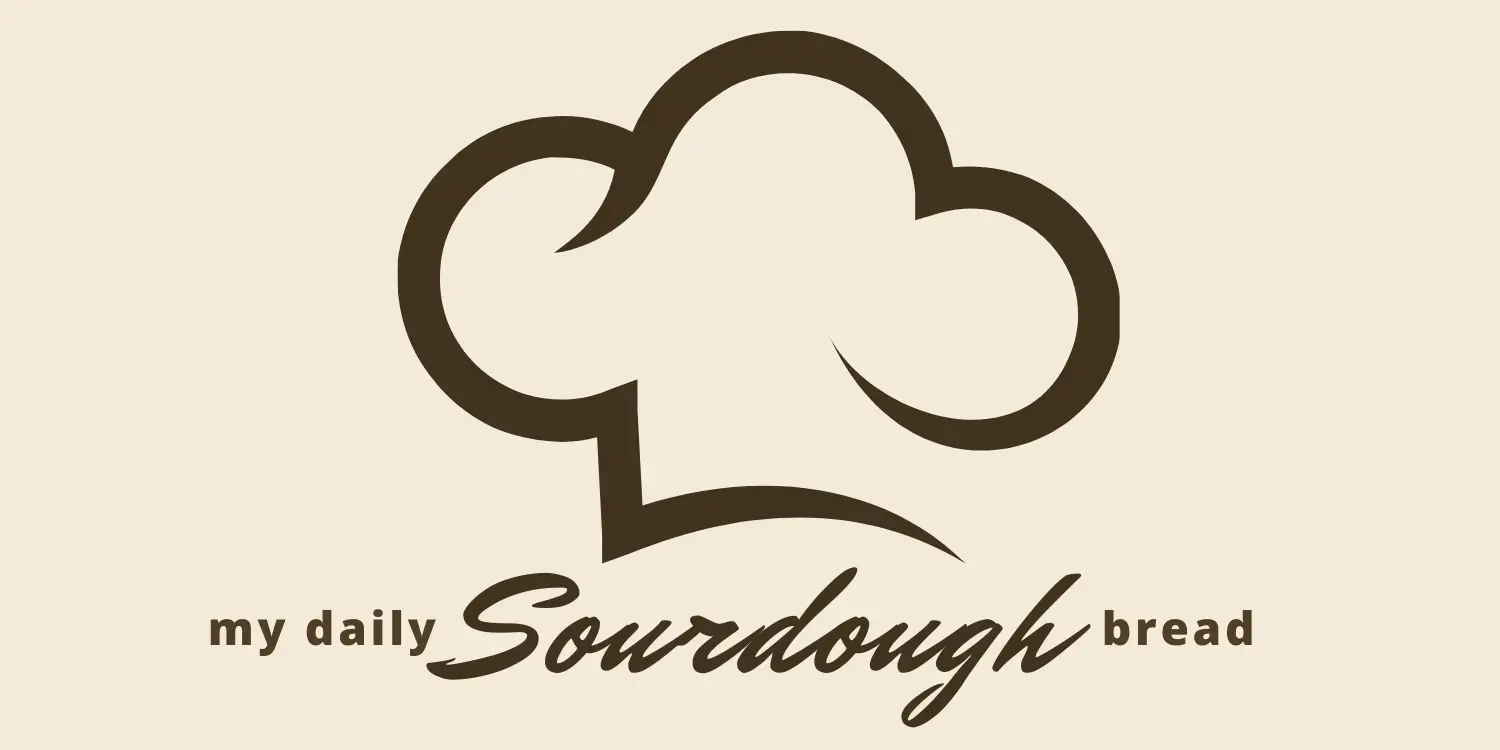Bread lovers often wonder – is sourdough actually good for me? With its tangy taste and chewy texture, sourdough seems tasty, but does it offer real health perks too? This ancient artisanal loaf undergoes a unique fermentation process that enhances nutrition and digestibility compared to regular bread. Let’s learn how sourdough positively impacts your health and lifestyle. After all, sourdough stands apart as a smart bread option you can feel good about enjoying as part of a balanced diet!

Table of Contents
- Why is Sourdough Bread Good for You?
- What is Sourdough Bread?
- Is Sourdough Bread Healthy or Not?
- Sourdough vs. Other Breads
- Sourdough and Blood Sugar Levels
- Sourdough’s Gluten Content and Digestibility
- Sourdough and Weight Management
- Possible Downsides of Sourdough
- Sourdough is Healthy but Moderation is Still Key!
- FAQs
Why is Sourdough Bread Good for You?
Here are the top reasons sourdough bread is good for you:
- Lower in carbohydrates compared to many commercial breads
- Higher in fiber and protein than regular white or whole wheat breads
- Rich in probiotics – contains billions of live lactic acid bacteria beneficial for digestion and immunity
- Has a low glycemic index which helps control blood sugar levels and energy release
- Natural fermentation process breaks down gluten and other compounds, improving digestibility
- Satisfies hunger and promotes feelings of fullness which aids weight management
- Friendly bacteria and fermentation byproducts offer anti-diabetic effects and help manage diabetes
- Prebiotic fiber feeds good gut bacteria linked to better overall metabolic health and weight regulation
- Easier to tolerate for people with gluten sensitivities thanks to partial digestion of gluten proteins and peptides
We’ll go into more detail for the health benefits of sourdough bread. But first, if you’re new to the world of sourdough bread: welcome! Let me introduce you to what sourdough bread is.
What is Sourdough Bread?
Sourdough bread starts with a “starter” made from a mixture of flour and water that captures wild yeast and bacteria from the air. This starter culture is kept alive by regular feedings and contains beneficial microorganisms like lactobacilli and yeasts.
Over time, the yeasts and bacteria in the starter produce lactic acid and carbon dioxide gas through fermentation. This is what gives sourdough its tangy, sour taste and airy texture in the final baked loaf.
Unlike most breads made with commercial baker’s yeast, sourdough relies on naturally occurring yeast for leavening instead of yeast additives. This wild yeast is what makes sourdough unique.
The yeast cells eat sugars present in the dough and produce carbon dioxide bubbles. When the dough is baked, the gases expand and cause the bread to rise into an airier loaf full of irregular holes. This natural leavening process also contributes deeper flavors.
After the starter is mixed into the dough, sourdough bread undergoes an extended fermentation time of 8-24 hours. This drawn-out process allows complex flavors to develop through the metabolic activity of yeasts and bacteria.
The lactic acid produced by lactobacilli gives sourdough its tang while making the proteins and starches more digestible. The longer proofing time also results in a chewier, more textured crumb.
Sourdough Bread Ingredients
At its core, sourdough only has four basic ingredients: flour, water, salt, and the starter culture. Traditional recipes use unbleached white or whole wheat flours (like in my whole wheat sourdough recipe).
The flour provides carbohydrates to feed the yeast and structure to form gluten. Water hydrates the proteins and starches. Salt controls fermentation, brings out aroma, and adds flavor.
Beyond these core components, bakers can tweak recipes with additional whole grains, seeds, sweeteners, or fats like oil or butter to create variety.

Is Sourdough Bread Healthy or Not?
Yes, sourdough bread is generally considered healthy. At a glance, this artisanal bread, known for its characteristic tang and chewy texture, offers more than just good taste.
Sourdough’s unique fermentation process not only enhances its flavor but also imbues it with health benefits not commonly found in regular bread. From its lower glycemic index, which is a boon for blood sugar control, to the natural fermentation that aids in digestibility and gut health, sourdough presents a compelling case for being a healthier choice.
Let’s start by looking at how sourdough compares to common breads you might find in your local bakery.
Sourdough vs. Other Breads
How does sourdough stack up against popular bread options like whole wheat or multigrain in terms of nutritional value? While specifics can vary based on exact recipes, sourdough generally emerges as a top choice.
Fewer Calories Than White Bread
While nutrition can vary between recipes, a 1-ounce slice of whole wheat sourdough bread provides about 100 calories. In comparison, traditional white bread clocks in at 75-80 calories per slice.
However, sourdough’s calories come paired with more micronutrients, fiber and protein – making it more nutritious overall per calorie despite having moderately more calories than white bread.
Sourdough vs Whole Wheat Bread
Both sourdough and 100% whole wheat breads utilize whole grains, making them nutrition powerhouses compared to refined white bread. However, the fermentation process gives sourdough the edge for digestibility.
The bacteria in sourdough break down antinutrients like phytic acid in the whole grains that can prevent mineral absorption. This makes nutrients like iron, zinc and magnesium better available for digestion and uptake in the body.
Fewer Carbs Than Most Breads
With approximately 15 grams of net carbs per slice, sourdough tends to be lower in carbohydrates compared to many commercial breads. For example, a slice of whole wheat bread averages about 20 grams of carbs.
The extended ferment also results in a gentler impact on blood sugar levels compared to other breads thanks to natural enzymes creating more pre-digested carbohydrates.
More Fiber and Protein
A slice of sourdough provides 2-3 grams of dietary fiber, meeting 11% of the daily value. Whole wheat has slightly more at 4 grams per slice, but sourdough’s digestibility makes its fiber equally beneficial.
You’ll also get around 4 grams of filling protein per slice of sourdough, comparable to the protein content in sprouted grain and other high-protein breads.
Rich in Probiotics
No other bread type contains the billions of live probiotic bacteria naturally present in sourdough from the fermentation process. These healthy microflora provide digestive and immune benefits you won’t find in traditional bakery breads.

Sourdough and Blood Sugar Levels
With its whole grains and fiber, sourdough seems like a healthy bread choice. But how does it really impact your blood sugar when you eat it?
The good news is that sourdough emerges as an excellent option for steady energy and glycemic control.
Naturally Low Glycemic Index
The Glycemic Index (GI) measures how quickly foods raise blood glucose. Sourdough scores much lower than commercial yeasted breads with a GI of 45-55, depending on the flour blend.
This gradual blood sugar response makes sense given sourdough’s pre-digested starches and extended ferment. The bacteria produce acids and enzymes that break down anti-nutrients, fiber and complex carbs into simpler, easier to absorb sugars.
Sustained Energy Release
Rather than causing sharp glucose spikes, sourdough releases sugar into the bloodstream slowly and steadily. This gives you long-lasting fuel and satisfaction from a slice compared to the quick highs and crashes of high GI foods.
Maintaining stable blood sugar this way reduces insulin demand and stress on the body over time. So enjoy sourdough’s sustained energy!
Benefits Diabetes Management
For those managing diabetes or insulin resistance, sourdough makes an excellent bread choice as part of a low GI diet. Studies show participants with diabetes saw improved glucose tolerance and insulin response eating sourdough versus regular bread.
Sourdough’s acidity and fiber slow absorption from carbohydrates, while live cultures may also contribute anti-diabetic effects. This helps mitigate blood sugar fluctuations when you indulge in bread.
So not only does sourdough taste great, but its unique fermentation and nutritional makeup give it clear blood sugar advantages as well. A true win-win!
Sourdough’s Gluten Content and Digestibility
With rising awareness of gluten-related issues like celiac disease and wheat sensitivity, many people wonder – is sourdough bread gluten-free? The answer is complicated, but comes with some good news.
Sourdough Contains Gluten
Sourdough is made from wheat or other gluten-containing grains like rye or barley. So unlike grains naturally lacking gluten like rice and corn, sourdough does contain gluten proteins.
However, the fermentation process makes this gluten easier to tolerate for some. Extended proofing times allow unique lactobacilli cultures to break down hard-to-digest compounds in gluten.
Potentially Easier to Digest
Research indicates the bacteria and acids formed during sourdough fermentation partially digest gluten peptides and starches. This makes the remaining gluten more digestible compared to conventional yeasted bread.
In particular, studies show sourdough breaks down troublesome prolamins and glutenins implicated in gluten issues. So while not gluten-free, sourdough may be easier on sensitive guts.
Can Benefit Gluten Sensitivity
Some individuals struggling with gluten find they can tolerate sourdough well. Its predigested gluten elicits less of an immune reaction linked to gastrointestinal and systemic symptoms.
Of course, those with celiac disease still require a strict 100% gluten-free diet. But for gluten-sensitive folks without celiac, sourdough baked from gluten grains offers unique digestive benefits worth considering.

Sourdough and Weight Management
With its fiber, protein, and probiotics, sourdough seems like it could support healthy weight loss as part of a balanced calorie-controlled diet. Let’s analyze how this delicious bread impacts appetite, metabolism, and dieting success.
Promotes Satiety and Fullness
Thanks to its intact grains, sourdough bread takes longer to move through your digestive tract compared to refined carbs. This slow digestion keeps you feeling fuller between meals.
The fiber also helps curb appetite by slowing gastric emptying. One study saw participants experience less hunger and greater satiety after eating sourdough versus regular white bread.
Lowers Calories From Carbs
We learned earlier that sourdough has a lower glycemic index than most commercial breads. This means its carbs get absorbed more slowly, resulting in better blood sugar control.
Converting carbs to blood glucose requires some energy expenditure. So sourdough ultimately nets slightly fewer calories absorbed per gram of carbohydrate compared to rapidly-digested breads.
Supports Metabolic Health
Beyond blood sugar control, sourdough’s live probiotic cultures may also play a role in weight regulation. Emerging research suggests gut microbiome composition impacts metabolic processes tied to obesity.
The friendly lactobacilli in sourdough could benefit metabolism and fat burning. But more studies are needed to confirm direct effects on weight loss.
Possible Downsides of Sourdough
While we’ve covered numerous health upsides to enjoying sourdough bread, a balanced view calls for discussing potential disadvantages as well. These mainly revolve around pre-existing food sensitivities.
Allergy and Sensitivity Considerations
Despite easier digestibility, sourdough still contains gluten, FODMAPs, and compounds that provoke problems for some. People with celiac disease, wheat allergy, or sensitivities may experience gastrointestinal or other symptoms.
Additionally, the fermentation process produces biogenic amines like histamine that can trigger headaches, rashes, or reactions in amines-sensitive individuals. So those with particular intolerances should exercise caution with sourdough.
Overdoing Bread in General
Bread lovers must remember that even the healthiest loaves – sourdough included – should not form the bulk of your diet. Centering meals around processed grains displaces more nutrient-dense foods.
While traditional cultures treated long-fermented bread as more of a side, the modern food environment sets bread up as a dietary staple. But restraint still merits consideration for optimal wellness.
The Right Balance is Key
In the context of an overall nutritious diet rich in vegetables, legumes, lean proteins and healthy fats, enjoying sourdough bread as an occasional treat poses little downside for most people.
As with most beloved foods, from cheese to chocolate, finding balance allows you to reap metabolic benefits while avoiding overconsumption. Moderation matters!
So be mindful of any personal sensitivities, but don’t fear reasonable sourdough enjoyment. Combine it with other nourishing whole foods for an optimal diet that includes room for bread’s delicious pleasures!

Sourdough is Healthy but Moderation is Still Key!
While no single food can meet all nutritional needs, enjoying sourdough in moderation can be part of a balanced diet. Its tasty pleasures combined with enhanced nutrition and versatility for special diets make sourdough a fantastic choice.
So if you love bread but want to maximize nutrition too, sourdough is a smart way to have your loaf and eat it too! Allowing this artisanal loaf a place at the table lets you enjoy delicious taste and health perks at the same time.
Make your own sourdough bread and reap the benefits today!
FAQs
Is sourdough healthier than normal bread?
Sourdough bread contains higher levels of vitamins, minerals and antioxidants compared to other varieties of bread. It also contains lower levels of phytate, thereby allowing your body to suck in the nutrients more efficiently as opposed to regular bread.
Is sourdough bread better for weight loss?
According to some research, sourdough-leavened wholemeal bread can assist in weight loss. This is mainly due to the combined glycemic index, and glycemic load ratings.
Is it OK to eat sourdough bread everyday?
Yes, it is generally OK to eat sourdough bread every day as part of a balanced diet. However, portion size and individual dietary needs should be considered.




![What Soup Goes Well With Sourdough Bread [15 Best Soups To Try] 9 What soup goes well with sourdough bread [15 best soups to try]](https://www.mydailysourdoughbread.com/wp-content/uploads/2023/06/soups-with-sourdough-120x120.jpg)

